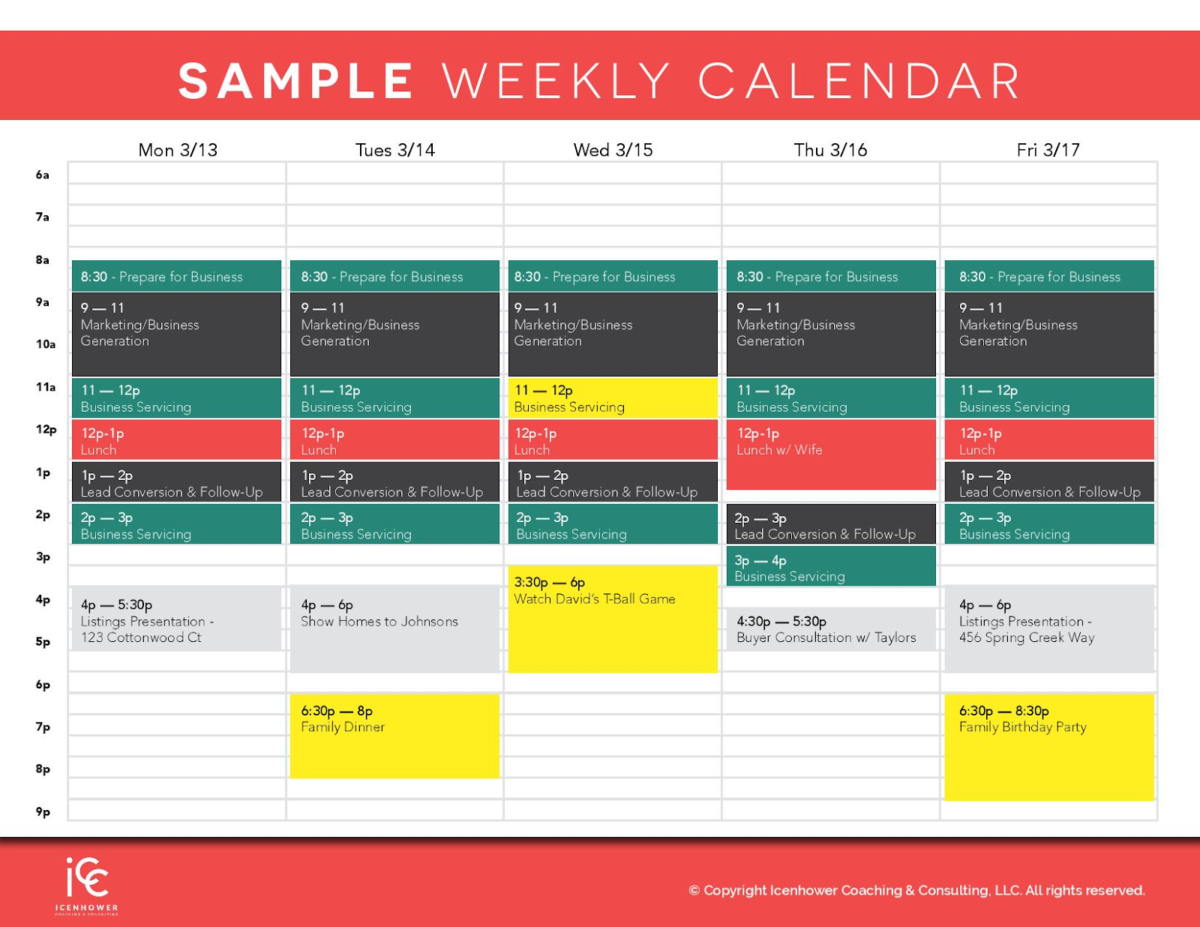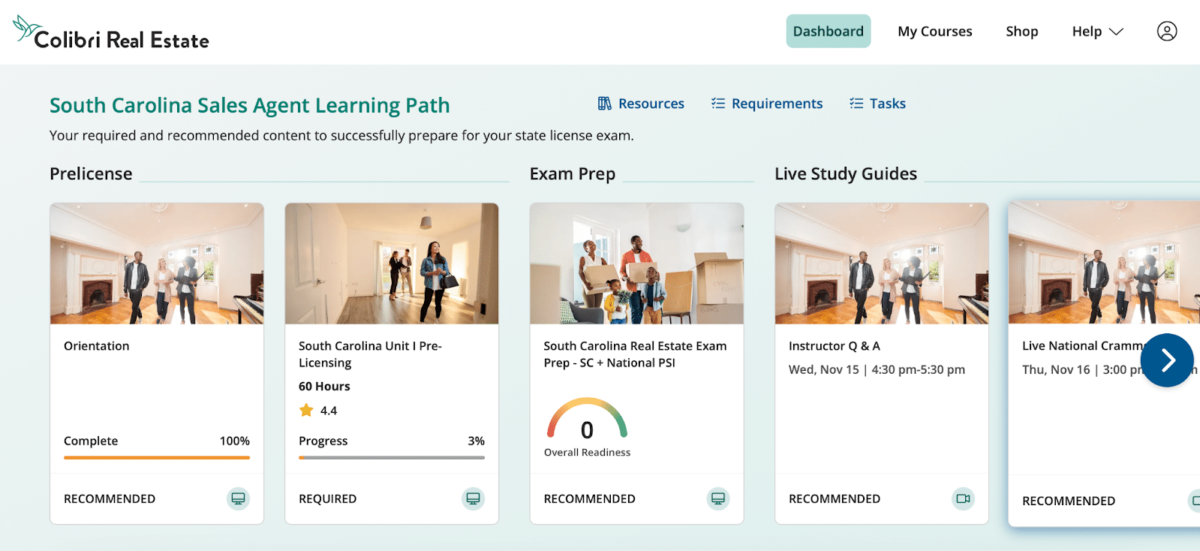Are you thinking about switching careers and wondering if you can do real estate part-time? Yup—you totally can make real estate your side hustle! Licensed real estate agents can work as much or as little as they want, which makes this hustle an excellent choice for anyone looking for a flexible part-time job with the potential to earn a lot. I’ll discuss some common questions about being part-time in the real estate industry, the pros and cons, and how to get started as a part-time real estate agent.
What Is a Part-time Real Estate Agent?
Being a part-time real estate agent means working 35 or fewer hours in the real estate industry, likely due to other jobs or personal interests and commitments. Part-time agents may have a separate source of income or work in real estate as a secondary job. Due to limited availability, they may encounter challenges regarding time management, availability, and fierce competition with full-time agents.
The US Bureau of Labor Statistics states that part-time agents work less than 35 hours weekly. Still, part-time agents can be successful with good time management and a focus on excellent client service. If these hours fit your schedule and lifestyle, being a part-time realtor could be a great real estate side hustle.
In addition, it’s worth mentioning that becoming a part-time real estate agent could be a great choice for retirees who want a flexible schedule and extra income during retirement. This could be appealing to retired real estate pros and people from different backgrounds who want a flexible and financially rewarding opportunity during their retirement years.
Part-time vs Full-time Real Estate Agents
The significant difference between being a part-time and full-time real estate agent is the level of commitment and the time dedicated to the real estate profession. Here are some key distinctions to keep in mind:
Factors to Consider: Is a Part-time Real Estate Career Right for You?

I’m sure you’ve got some burning questions about how it works and whether you can do real estate part-time. However, being a part-time real estate agent isn’t a walk in the park. It takes a lot of time and effort to see actual results. Here are factors to consider and what you need to know to pursue this career path.
Factor 1: Part-time Agent ‘Salary’
Most agents are considered independent contractors, not employees getting a salary in this line of work. Your earnings as a real estate agent depend on your expenses and the number of sales you make. The potential to earn is huge, but you could make no money in a month or even operate at a loss after covering your expenses.
The pay for a part-time real estate agent varies based on many things, like the market, how many hours they work, how skilled they are, and how their brokerage does their commissions. Let’s break down what affects how much a part-time real estate agent makes:
- Market conditions: Real estate markets are different depending on where you are. Property prices and commissions can be higher in places where everyone wants to live, so you can make more money.
- Commission rates: The standard real estate commission in the US is currently around 6%, typically divided between the listing and buyer agents. However, this may differ with the new NAR ruling and buyer broker agreement. The agent’s brokerage firm also takes a percentage cut before the agent gets its share.
- Experience and skill level: Agents with more experience and skills tend to close more deals and have the power to negotiate for higher commission splits with their brokerages, thereby increasing their potential earnings.
- Number of transactions: The number of properties an agent can sell or lease affects their income, and part-time agents usually handle fewer deals than full-time agents.
- Time invested: A part-time realtor might work evenings and weekends or dedicate a few days a week to real estate, impacting the number of clients they serve and properties they can show.
- Property type and location: Part-time agents can make more money per sale by focusing on specific property types and areas with fewer listings, like luxury and commercial real estate, which usually take longer to sell. Also, picking a sought-after location with high property values or many people moving in and out could lead to bigger earnings.
Factor 2: Realtor Schedule
As a full-time real estate agent, you’ll work during regular business hours, evenings, and weekends to fit in with your clients’ schedules. You’ll also spend a lot of time looking for new clients and networking with other industry pros during the day.

| 5 a.m. - 5:40 a.m. | Wake up and exercise |
| 5:40 a.m. - 6:30 a.m. | Get ready for the day (shower, eat, etc.) |
| 6:30 a.m. - 7 a.m. | Real estate admin and growth (check and respond to client emails, check and post on socials, etc.) |
| 7 a.m. - 8 a.m. | Leave for main work |
| 8 a.m. - 12 p.m. | Focus on main work |
| 12 p.m. - 1 p.m. | Lunch break (check and respond to client emails, follow on leads, etc.) |
| 1 p.m. - 5 p.m. | Focus on main work |
| 5 p.m. - 6 p.m. | Drive home or go to real estate-related client meet-ups, showings, etc. |
| 6 p.m. - 7:30 p.m. | Dinner with family/clients/leads |
| 7:30 p.m. - 8 p.m. | Wrap up the day |
Example of a part-time real estate agent’s daily schedule
Part-time agents have less availability and primarily focus on evenings and weekends to meet with clients, show properties, and handle admin tasks. Being organized is key for part-time agents as they juggle real estate responsibilities with their primary job. For instance, a full-time teacher might do real estate part-time by using their evenings, weekends, and school holidays to serve clients and manage their real estate business. This way, they can pursue their passion for real estate while keeping the security of their full-time job.
Factor 3: Client Perception
When working part-time as an agent, being available for your clients 24/7 can be challenging. But you can manage this by being clear with your clients about when you’re available and how quickly you can get back to them. This will help you stay on top of things and feel more organized. Tools like email autoresponders and scheduling apps can also help you let clients know when you’re free and manage your availability.
But remember this: in real estate, what matters to clients is the value you offer, your market insights, and how you help them achieve their goals. They don’t care about how many hours you’re putting in. Success in this field is all about how you connect with people. Feeling like you’re up against experienced full-time real estate pros is normal. But here’s the key to success: At the end of the day, real estate is all about relationships. Your people skills and how well you stay on top matter much more than your work hours.
Factor 4: Brokerage Needs
Real estate agents must have a sponsoring broker representing buyers and sellers in transactions. Part-time real estate agent options might be more limited than your full-time colleagues. However, some brokerages are happy to hire energetic, talented part-timers. The key is finding a broker who is open to how you want to run your business.
Here are some of the best real estate brokerage for part-time agents:
 |
|
 |
|
|
Factor 5: Education Requirements
The education and license requirements for full-time and part-time agents are the same regardless of how many hours you choose to work. It can take a few weeks to a few months to become a part-time real estate agent, depending on how fast you go through the training, pass the exam, and meet other state and brokerage requirements. Make sure to look into the specific rules in your state so you can plan out your real estate career properly.
Factor 6: Time Management of Full-time Role
You can be a part-time realtor if you manage your time and keep a flexible but organized schedule. It usually means dedicating specific weekly hours to real estate, like evenings and weekends. To manage your time as a part-time real estate agent, it’s important to figure out your most important real estate tasks and set aside specific evenings and weekends for your real estate work. Here are some tips for managing your time when you have both a full-time job and part-time real estate responsibilities:
- Utilize time blocking: Remember to schedule specific time blocks for real estate tasks, like finding leads, meeting with clients, and showing properties. This will help you stay focused without getting distracted by your other responsibilities.
- Leverage technology: Remember to use scheduling and organizational apps to stay on track with your tasks and appointments. It’ll make your life easier and keep you on top of all your real estate commitments.
- Prioritize tasks: Remember to find the most important real estate tasks that need your attention and work on finishing them during your part-time hours. This way, you can use your limited time and feel a sense of accomplishment.
- Delegate when possible: If tasks aren’t super important, consider getting help from others or outsourcing them. This will give you more time to focus on your part-time real estate work.
- Communicate effectively: Let people know when you’re available and when you’re not. Sharing your part-time schedule can help avoid misunderstandings and scheduling issues.
By implementing these time management tips, you can effectively balance your full-time role with your part-time real estate responsibilities.
Pros & Cons of Becoming a Part-time Real Estate Agent
Thinking if you can do real estate part-time? Before you decide, it’s essential to weigh the pros and cons of being a real estate agent, part-time or full-time.
How to Get Started as a Part-time Real Estate Agent
If the answers to the above questions have you fired up to begin your new side hustle, this section is for you. Here are the steps you’ll need to take to start as a part-time realtor.
-
Complete required education: To legally offer real estate services, you need a license from the state where you want to operate. The time and cost required to obtain a license varies depending on location. But the overall process is similar. First, take a prelicensing course that satisfies your state’s education requirements. Then, take some real estate practice exams, pass your state test, and register your license with your state.
-
Select your brokerage: Find a broker to sponsor your license. Being open about your availability and understanding commission share and potential fees is crucial. Look for a broker who offers mentorship and support to help you succeed. Here are the best brokerages that fit your needs.
-
Make a plan: Start with a real estate business plan to handle costs and predict income. Our guide can help you determine expenses, commission splits, and marketing. Planning marketing expenses and generating enough leads to make your business sustainable is essential. Also, invest in a good CRM system early on to manage interactions with leads, prospects, and clients.
-
Set your schedule: If you’ve got a full-time job, let your employer know about your new gig and assure them it won’t get in the way of your work. Set aside regular time for real estate work to manage client expectations and avoid scheduling conflicts. Remember to prioritize some downtime to prevent burnout from juggling your various commitments. Be clear and upfront with demanding clients to minimize stress and frustration. Also, think about scheduling all your in-person real estate tasks on a specific day each week to help you manage your time better.

If you’re ready to dive right into step one, I suggest checking out our top choice of online real estate schools, Colibri Real Estate, for your prelicensing courses. They offer affordable options in just about every state. We are consistently impressed with the quality of education, their well-designed self-paced courses, and their pass-or-don’t-pay guarantee.
Tips for Part-time Real Estate Agents
Thinking about diving into the real estate world while balancing a part-time gig? It can be a tough balancing act, but with the right strategy, you can definitely make it work. Check out these tips for part-time real estate agents to make the most out of your hustle and find success in the industry:
- Time management: Plan your real estate tasks around your main job to juggle both effectively.
- Utilize technology: Use real estate apps and online tools to stay organized and efficiently handle your real estate responsibilities.
- Networking: Use your free time to connect with leads, potential clients, and other real estate professionals to expand your contacts and opportunities.
- Stay informed: Keep yourself updated with real estate trends, market changes, and legal regulations, even if you’re working part-time.
- Set realistic goals: Set achievable targets for your real estate business while considering your part-time commitment and work towards meeting them consistently.
Bringing It All Together
Thinking if you can be a part-time realtor? It’s a great move for anyone interested in a flexible and potentially profitable side hustle. It’s perfect for those who value freedom, entrepreneurship, and helping others. Remember, clients really want an agent who’s committed to them and their goals, not just someone who’s sold a certain number of houses or worked a specific number of hours.
We’d love to know what’s attracting you to the real estate field. Are you already working as a part-time real estate agent? How’s your experience been so far? Share your thoughts in the comments below!










